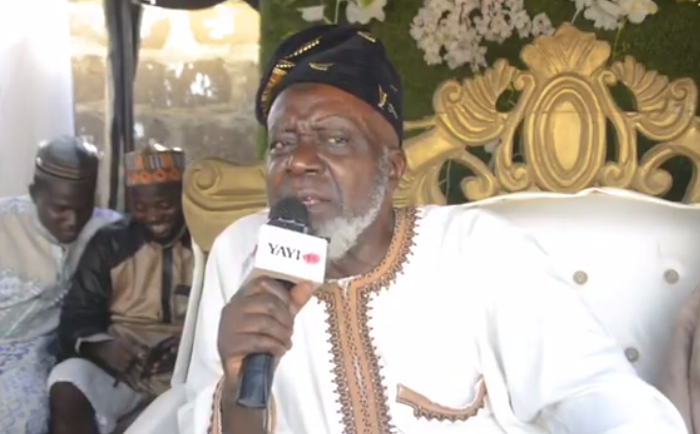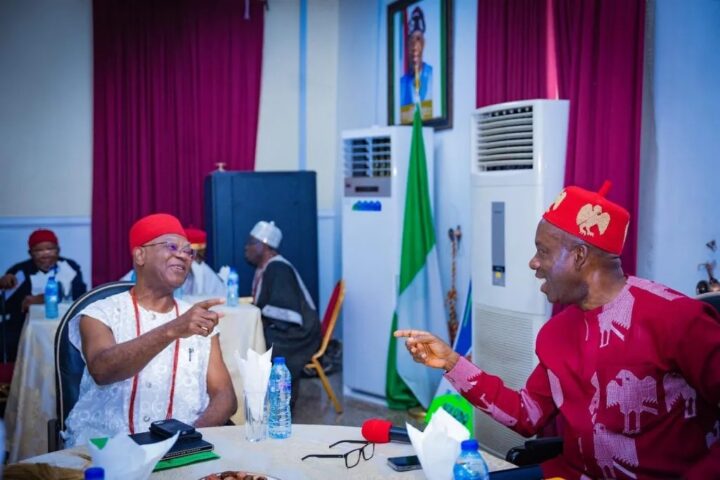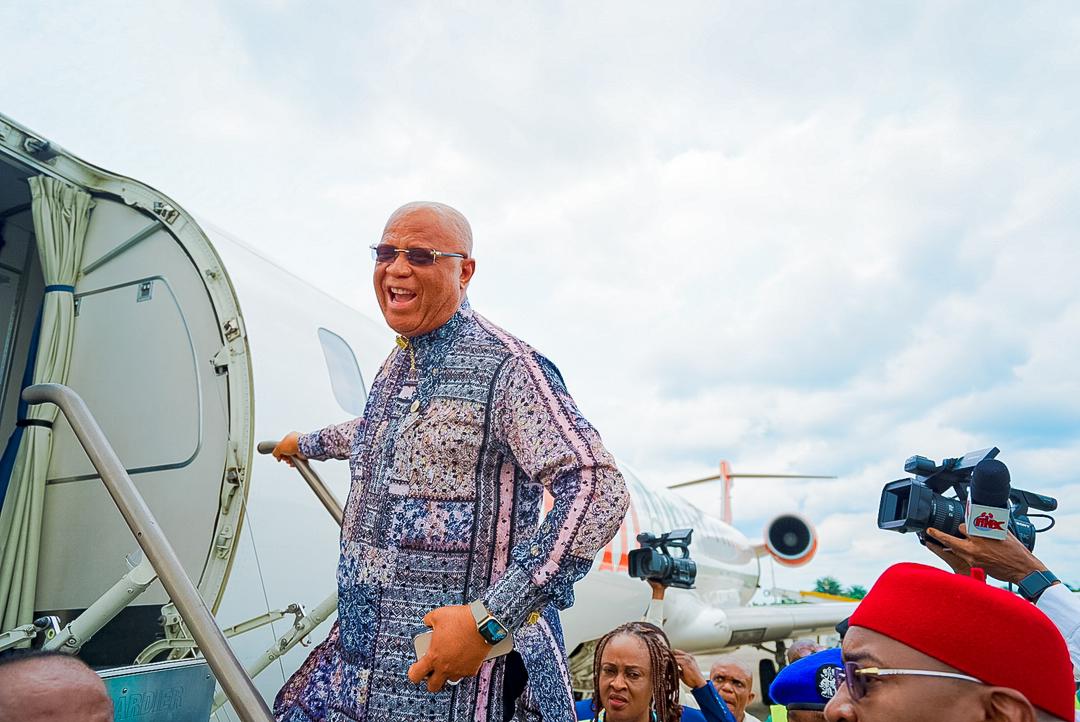The National Broadcasting Commission (NBC) got a dip in reputation and responsibilities last week when a Federal High Court in Abuja shaved it of its capacity to ever place a fine on any of the broadcast stations it regulates. It was a major victory for Media Rights Agenda (MRA) which had taken the Commission to court over the fine it imposed on some broadcast houses for alleged breach of the Nigeria Broadcasting Code sometime in 2022.
For a nation looking for a voice against everything that is wrong in a government system that looks oppressive always, it was the kind of judgement the people yearned for, as the outcome quickly went through the nation like a flame. But it wasn’t a good one for the regulator which has gotten singed for fault it shouldn’t carry.
For years insecurity has been a major headache keeping people awake day and night. At a particular time in 2022, when the Buhari administration awarded itself pass marks for technically defeating the bandits that had taken over swathes of land in different parts of the nation, the BBC ran a documentary that was carried on some broadcast channels in the country, which seemed to put a lie to the position of the government.
The broadcast organisations involved were Multichoice Nigeria Limited, owners of DSTV, TelCom Satellite Limited (TSTV), Trust-TV Network Limited; and NTA Startimes Limited, a joint venture between the government station and some Chinese business concerns.
Advertisement
The documentary reflected the dangerous reality of life in the country especially in Zamfara but the pill was too bitter and shameful for an arrogant government to swallow. And officials needed immediate action. Punish those stations that could engage in such perfidy at a time there was such tranquillity in the nation, at least in the estimation of government officials that could see only good in their failure. The airing of the documentary allegedly undermined Nigeria’s national security!
But there was a problem. Officials of the NBC, the broadcast regulator, had watched the documentary over and over, even with magnifying glasses, and came to the conclusion that there was nothing wrong with it at all. If the government felt otherwise, the most it could do was to enjoy a right of reply or do another documentary to tell its story.
There was anger in high places. And the government got into a nasty groove. A document was written, and a fine was imposed, the heaviest of them all, N5m, something that looked punitive. It was the beginning of a long battle.
Advertisement
The freedom of the media is not something taken lightly anywhere in the world, let alone Nigeria, where the Buhari administration had been known for its nastiness to free press. Under this administration, there had been too many fines, which really irked people to no end.
Unable to accommodate such continuing restrictions on the media, the MRA, through their lawyer, Mr Uche Amulu, went to court to ask, among other things, that “the NBC’s action of imposing a fine on each of the media platforms and the station for broadcasting a documentary about the state of banditry and security in Zamfara State is unlawful and unconstitutional and has a chilling effect on freedom to impart information and ideas. MRA contended that it would deter the platforms and station from reporting the true state of affairs regarding the security situation in Nigeria, and therefore constitutes a violation of the rights of MRA, its members, and other citizens of Nigeria to freedom of expression, particularly their rights to receive ideas and information without interference, as guaranteed by the Constitution and the African Charter on Human and People’s Rights.”
MRA also sought other declarations, including the procedure adopted in imposing the fines, which it said, was a flagrant violation of the rules of natural justice and the right to fair hearing under the Nigerian Constitution and Article 7 of the African Charter.
In a ruling last week, Justice Rita Ofili-Ajumogobia of the Federal High Court, Abuja, declared as null and void the provisions of the Nigeria Broadcasting Code authorising the National Broadcasting Commission (NBC) to impose fines on broadcast stations for alleged breaches of the Code, ruling that administrative and regulatory bodies could not exercise judicial powers.
Advertisement
The NBC, according to the judgement, is not a court of law, and it acted above its powers by imposing such fines.
It is unfortunate that the NBC is trapped in a situation that it really cannot explain and for which it has to suffer buffeting from all angles. This writer is aware of the politics behind the fines which the NBC would never be able to declare openly. It is a handicap emanating from a flawed Act. I am told by insiders at the Commission that NBC will go for an appeal. I expect the regulator to do so.
All of last week, I was asking myself: so what happens to regulation now?
Commercialisation and deregulation were a feature of the late 80s and early 90s as a major push or encouragement for the government to evacuate its intruding presence from businesses by way of attracting private investors while making more money in the process. The laws deregulating the various sectors were specifically crafted to protect the investors and their businesses. Broadcasting and Telecommunications were major beneficiaries of the process.
Advertisement
Under Section 2 of the National Broadcasting Act, CAP N11,Laws of the Federation of Nigeria, 2004, the NBC is empowered to establish and disseminate the Code, and also to apply sanctions to defaulting stations which violate the Code. Section 23 empowers the NBC to make regulations for the purpose of giving effect to the provisions of the Act with the approval of the Minister.
The Nigerian Communications Act 2003 also empowers the Nigerian Communications Commission (NCC) to make and enforce regulations that could give full force and effect to the provisions of the Act, except that the NCC can do this without the intrusion of an external entity. Quite different from the NBC Act.
Advertisement
A friend, a learned one for that matter, once told me that these regulations and guidelines are ancillary laws that could be enforceable. I couldn’t argue with him because I don’t wear the appellation of a “learned colleague.”
A regulator once told me that fines are regulatory instruments with which regulators knock some froward operators in line. I may not have swallowed that completely but I did ask myself, why is it that heavens do not come down when, for instance, the NCC and the Central Bank parcel out hefty fines to their operators?
Advertisement
Here is what looks like an answer. I was at a dialogue on the broadcast industry put together last year by the Institute for Media and Society (IMS). Edetaen Ojo of Media Rights Agenda (MRA) was in attendance. I could recall and it was generally agreed that nobody was against the NBC doing its job but almost everybody faulted the Commission for not following its own processes in taking decisions that could have far reaching effects on the industry. There was also the complaint of arbitrary fines being imposed on broadcast houses by the regulator, especially under the Buhari administration.
NBC is witnessing public sandbagging and nobody seems to care for the simple reason that emotions are hitting the wrong nerves. The bellicosity of the Buhari administration to the media cannot be forgotten so soon, and so is the painful reality of victims of, or people losing loved ones to insecurity or even living permanently in fear. And the government didn’t want us to talk about it.
Advertisement
Here is my take. The ruling last week may transcend the NBC to affect the fortunes of other regulators in the country. I do not believe that NBC is a loser. Not at all. But it has to be given the latitude to grow as an institution and be able to withstand pressures from industry and the government. The latter exerted too much pressure on the regulator under the last administration.
The NBC needs help from the National Assembly through a review of the Act. For instance, it is common knowledge that the current Code had too many external contributions and influences that have put it under permanent pressure, all arising from a defect in the Act. The NBC I know has the capacity always to produce a document that can serve the industry and country.
Views expressed by contributors are strictly personal and not of TheCable.
Add a comment







